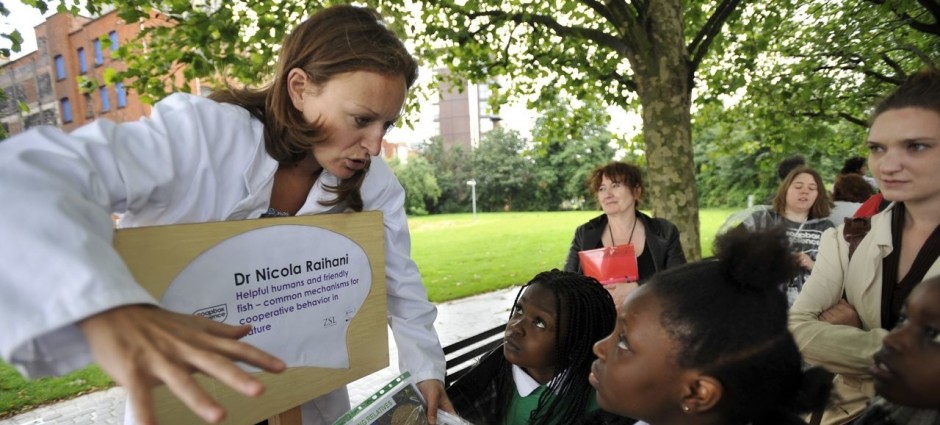Your brain is amazing. Whilst just a collection of cells, it is these cells that allow us to be creative, to build memories, and to respond and interact with everything else in the world. I’m interested in finding out how the brain does this, and how it changes as we develop – something I’ll be discussing at the coming Soapbox Science Oxford event
 I’m currently a Postdoctoral researcher at the University of Oxford. My research investigates how babies respond to different stimuli, particularly focussing on painful stimuli. To do this we look at how babies’ brain activity changes in response to things like blood tests, which they need as part of their medical care. This research should therefore have important medical implications – babies who need intensive care can have lots of painful medical procedures, but because they cannot tell us whether they are in pain, it’s difficult for the medical team to know how to treat their pain. We hope that by understanding how the brain processes these stimuli we can improve pain treatment. From a more biological perspective, we look at very preterm babies up to babies who are born at term, and it’s fascinating to see how much the brain changes in this short space of time.
I’m currently a Postdoctoral researcher at the University of Oxford. My research investigates how babies respond to different stimuli, particularly focussing on painful stimuli. To do this we look at how babies’ brain activity changes in response to things like blood tests, which they need as part of their medical care. This research should therefore have important medical implications – babies who need intensive care can have lots of painful medical procedures, but because they cannot tell us whether they are in pain, it’s difficult for the medical team to know how to treat their pain. We hope that by understanding how the brain processes these stimuli we can improve pain treatment. From a more biological perspective, we look at very preterm babies up to babies who are born at term, and it’s fascinating to see how much the brain changes in this short space of time.
Before I moved into Neuroscience, I actually started out studying Maths, doing an undergraduate degree at the University of Warwick. During my degree I did some modules in Mathematical Biology and Theoretical Neuroscience and this sparked my interest in studying how maths can be applied to biology. I then went on to do a Masters in Mathematical Biology and a PhD in Neuroscience at University College London. Whilst it might seem like a strange transition, I think that having different backgrounds can be really helpful in science. The team of people I work with now come from lots of different backgrounds, including physics, engineering and biology, as well as clinical staff. By working together and sharing our expertise we can better understand the areas we research.
In terms of a ‘typical’ day, as with all research, I don’t think any day is the same! I actually spend a lot of time working at a computer, looking at patterns in brain activity. I also spend some of my time with the babies recording their brain activity. It’s very special to be able to work with these newborn babies! It’s also a real privilege to work in research: to find out something about the world that no one else has known before. That’s pretty exciting!
